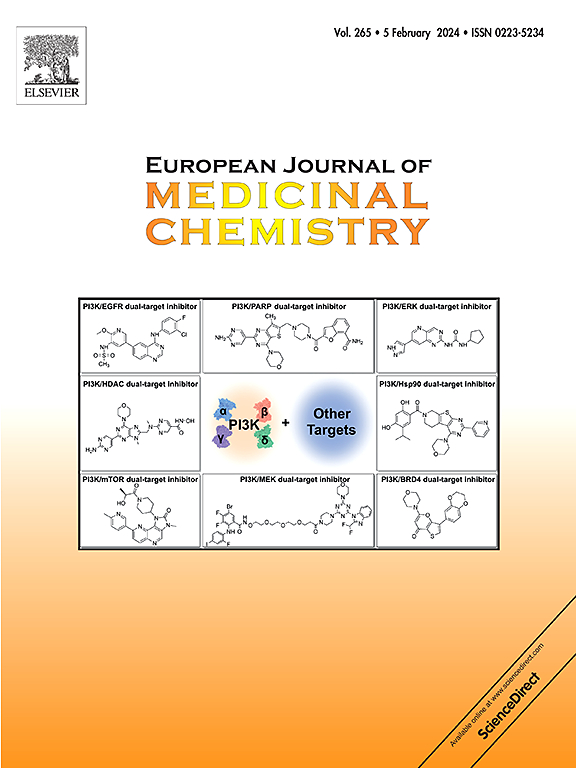心力衰竭时泛素-蛋白酶体系统活性改变的机制和药物干预
IF 6
2区 医学
Q1 CHEMISTRY, MEDICINAL
引用次数: 0
摘要
心力衰竭(HF)是一种难治性疾病,全球患病率持续上升。心衰的发病机制是多方面的,复杂的,尚未完全阐明。适当水平的蛋白质周转对于维持心脏稳态至关重要,因此,蛋白质降解系统受损可显著促进心脏病。泛素-蛋白酶体系统(UPS)通过促进信号和结构蛋白的降解来调节心脏细胞的结构和功能。在过去的十年里,研究的重点是阐明UPS在心血管生理学和病理生理学中的作用。全面了解UPS状态及其在心衰中潜在失调的潜在机制,对于制定有针对性的治疗干预措施至关重要。先前的研究已经确定了几种涉及UPS成分的新干预措施,其中一些已适用于心衰治疗。在这篇综述中,我们总结了HF中UPS活性改变的机制,并概述了影响HF进展的UPS调节因子。此外,还讨论了小分子干预HF患者UPS功能的可能性。本文章由计算机程序翻译,如有差异,请以英文原文为准。


Mechanisms underlying altered ubiquitin-proteasome system activity during heart failure and pharmacological interventions
Heart failure (HF) is a refractory disease with a global prevalence that is continuously increasing. The mechanisms underlying the pathogenesis of HF are multi-faceted, intricate, and not yet fully elucidated. Appropriate levels of protein turnover are essential for maintaining cardiac homeostasis and, accordingly, compromised protein degradation systems can significantly contribute to heart disease. The ubiquitin-proteasome system (UPS) modulates the structure and function of cardiac cells by facilitating the degradation of signaling and structural proteins. Research in the preceding decade has focused on elucidating the role of the UPS in the context of cardiovascular physiology and pathophysiology. A comprehensive understanding of the UPS status and the underlying mechanisms contributing to its potential dysregulation in HF is imperative for developing targeted therapeutic interventions. Previous research has identified several novel interventions involving components of the UPS and several have been adapted for HF therapy. In this review, we summarize the mechanisms underlying altered UPS activity in HF and provide an outline of UPS regulators that affect the progression of HF. Additionally, the potential for small molecules to intervene in UPS function in HF is discussed.
求助全文
通过发布文献求助,成功后即可免费获取论文全文。
去求助
来源期刊
CiteScore
11.70
自引率
9.00%
发文量
863
审稿时长
29 days
期刊介绍:
The European Journal of Medicinal Chemistry is a global journal that publishes studies on all aspects of medicinal chemistry. It provides a medium for publication of original papers and also welcomes critical review papers.
A typical paper would report on the organic synthesis, characterization and pharmacological evaluation of compounds. Other topics of interest are drug design, QSAR, molecular modeling, drug-receptor interactions, molecular aspects of drug metabolism, prodrug synthesis and drug targeting. The journal expects manuscripts to present the rational for a study, provide insight into the design of compounds or understanding of mechanism, or clarify the targets.

 求助内容:
求助内容: 应助结果提醒方式:
应助结果提醒方式:


